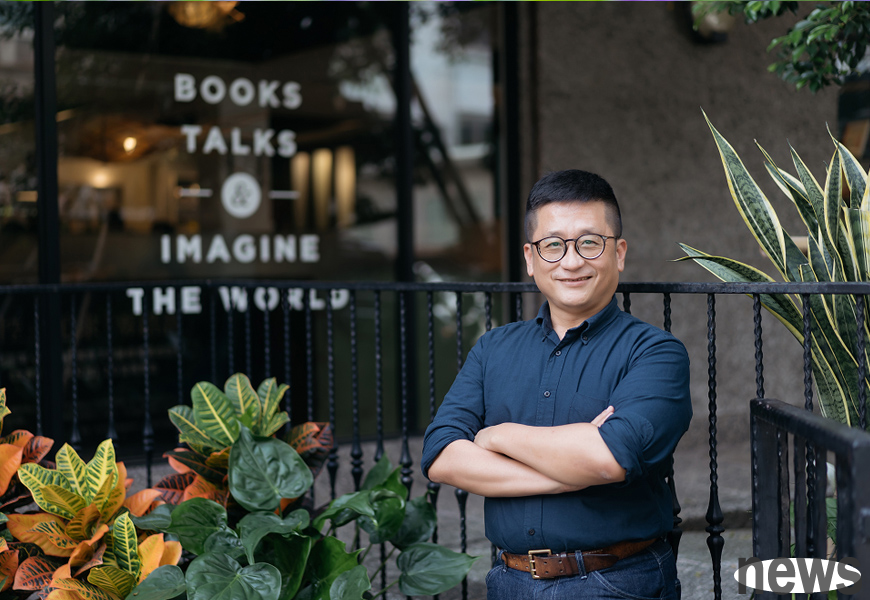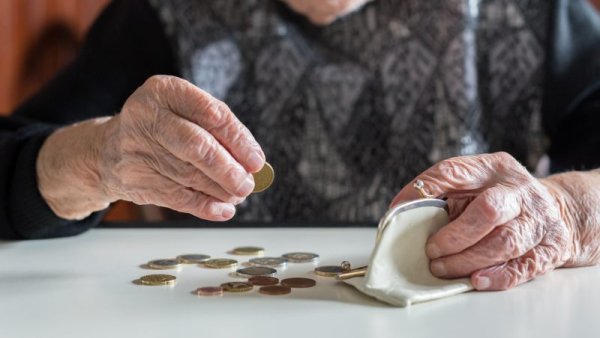The plan that only lives to the age of 85 is no longer suitable. Fu Ze: It is more important to prepare for the rest of your life than everyone thinks

Editorial: Due to the various changes that may be brought about by super-heavy society, how can we draw experience from other mountains? Foxx, a specialist who has been a member of the Japanese news mission for more than 20 years, believes: "If the age of 100 will become an inevitable trend, it is more important than everyone thinks."
According to statistics, the population of Taiwan over 65 years old has exceeded 3.8 million by the end of 2021, with a proportion of 16%. It is estimated that it will enter a super-high society in 2025, and the population over 65 years old will exceed 20%. Facing the various impacts derived from super-high society, Fukuoshi, a specialist who has rich experience in Japan and has long been observing all aspects of Japanese society and politics, believes that Japan, which belongs to a high country, has many worthy of Taiwan as a reference.
{In Japan, due to changes in social environment and population structure, high-age people who cannot obtain protection and care have resulted in many unsettling phenomena: from "ugly elderly people", "single death", to the long-term tragedy caused by family and children's inability to take care of elders, are all social problems that need to be solved urgently.
"I think Japan is walking in front of Taiwan on issues of economy and society. If we have foreseeed that there are pits that others have fallen down in front of us, we should now try to avoid it instead of continuing to follow the same old path, which would be a pity for me." Fuze Joe said.
The past plan that only lived to the age of 85 will no longer be applicable in the future.The first impact of a hypertrophy society is: the change in population composition. According to the 2021 statistics, Japan's population over 65 years old has approached 30%, and the social structure has gradually become an inverted triangle from the original pyramid (the number of high-grade population is larger than that of the Qing Dynasty). Therefore, in the past, most plans for life time were set to live to about 85 years old, and with the continuous extension of average life, it has gradually become no longer applicable.
"In the past, most people had a habit of cutting their lives into three pieces: the period from birth to the 20-year period of study was called growth period, and then they entered the job field, becoming the main dynamic and economic pillar of society, until they retired at the age of 65, and spent the next 15-20 years of life."
When the average life is extended and the final "third life" may extend to more than 20 years or even 30 years, this life plan is clearly no longer suitable. The increasing number of high-age population has not only made the support and budget for the youth population gradually become heavy, but the government originally planned support and budgets for the pensions and social benefits to high-age people have to be adjusted accordingly.
On the other hand, care problems of high-age people are gradually emerging. Middle-aged people in their 50s to 60s care for seniors in their 70s and 80s, and even the "old-aged care" between high-age couples, has become a rare and ordinary social situation.
When "the long-term poverty is no longer a blessing", Japanese society suddenly has an atmosphere of old age and hatred. Some people on the Internet even describe high-age people who have no contribution to society and will only increase their burdens. "Although Taiwan still respects elders relatively in a social atmosphere and does not have such a statement, it is true that high altitude will increase generational confrontation."
The concept of retirement will gradually disappear. How to find the enthusiasm for ending investment?So, how should we prepare for the century-old era of life? Fu Ze believes that it should be changed to 50 years old as the water divider, and divided into the upper and lower halfs. "The concept of retirement will slowly disappear in the future. But this is not that we have to work without rest for a while, but that the work style should be adjusted according to the stages of life."
Before the age of 50, work may be to maintain a lifelong life or to take on economic responsibilities at home, and there are some elements that cannot be done as we want. Therefore, after the contribution and dedication to society in the first half and the important planning of most of the life, when I was over 50, I should focus on two things: finally learn and become a person who can continue to give.
This "giving" may be to invest in charity, invest in new knowledge and interests, or to inherit your experience to the next generation. It will not be like many retirees in the past who have had a strong sense of interruption when leaving their jobs.
"After the age of 50, because of the accumulation in the first half, even if it is the same work, you can devote more effort to what you want to do, and even regain dreams you have not completed in the past. If you do what you like and enjoy life, you will naturally not feel as hard as working."
Before becoming a column review writer, Fuze Joe, who worked in media, also experienced middle-aged transformation and investment failures. "In the end, I decided to write the Japanese observation article that I am the best at and most interested in. On the one hand, it was also a kind of self-accumulation. When writing, I gradually had a column and publishing invitation. If I had not maintained this habit of writing. , there will probably be no such opportunities in the future. "
Instead of expecting government help, it would be better to start by yourselfto take the name "Fuzaka Joe" that he first heard of as a Japanese man, but he laughed that except for the Japanese bloodline that was 1/4 of his grandmother was Japanese, before he was sent to Japan, he actually knew nothing about this country, except for the Japanese language. The sentence is not clear, "Who doesn't know that Sakai Hatsuko, who was confused by boys in Taiwan at that time."
Fukuzawa believes that Taiwanese people have two perspectives to see Japan: "One is to look up from bottom to top, and think that Japan is good and everything is stronger than Taiwan; the other is people who look from top to bottom and feel that Japan is unlucky and disgusting.. But these two angles are not actually objective. Any country has something we deserve to learn from and at the same time there are places to take it as a warning. ”
Fuzaka believes that when Taiwan is thinking about many social problems, he first asks, "What can the government do for us?" But this is actually the biggest difference between Taiwan and Japan - the Japanese people first asks, what can they do.
"Of course this is also related to the slower efficiency of Japanese administrative system operation. If the government starts with the system, it may be inadequate." Therefore, compared with government organizations, reforms on many social levels in Japan have started with private organizations.
For example, many Japanese companies have begun to encourage employees to retire early, but they are recruited as "guests" and give practical guidance to young employees in a way like "teacher system". They may only need to attend 2 to 3 days a week. In addition to lacking work pressure, they will not hinder the promotion of young employees, but they can still make good use of the field experience and human resources of senior employees.
In Japan, there are also many mature people who break the stereotype of age and experience a unique and exciting life. They can be Youtuber, fitness coaches, or return to school to get real learning, or even use what they have learned to start a second time. "From these examples, we can see that the only obstacles are mentality, not age."
"Redefine the time of life, maintain an open mind, and continue to fulfill yourself, then you will no longer be worried when you get old, but there is another possibility of radiating and radiating!"
Original text: In the past, Japan, tomorrow Taiwan! Fukuze: The plan to live only 85 years old is no longer suitable. How can Japan welcome the 100th era of life?




